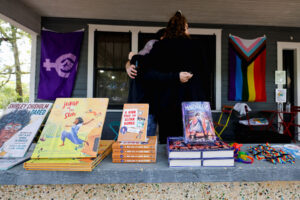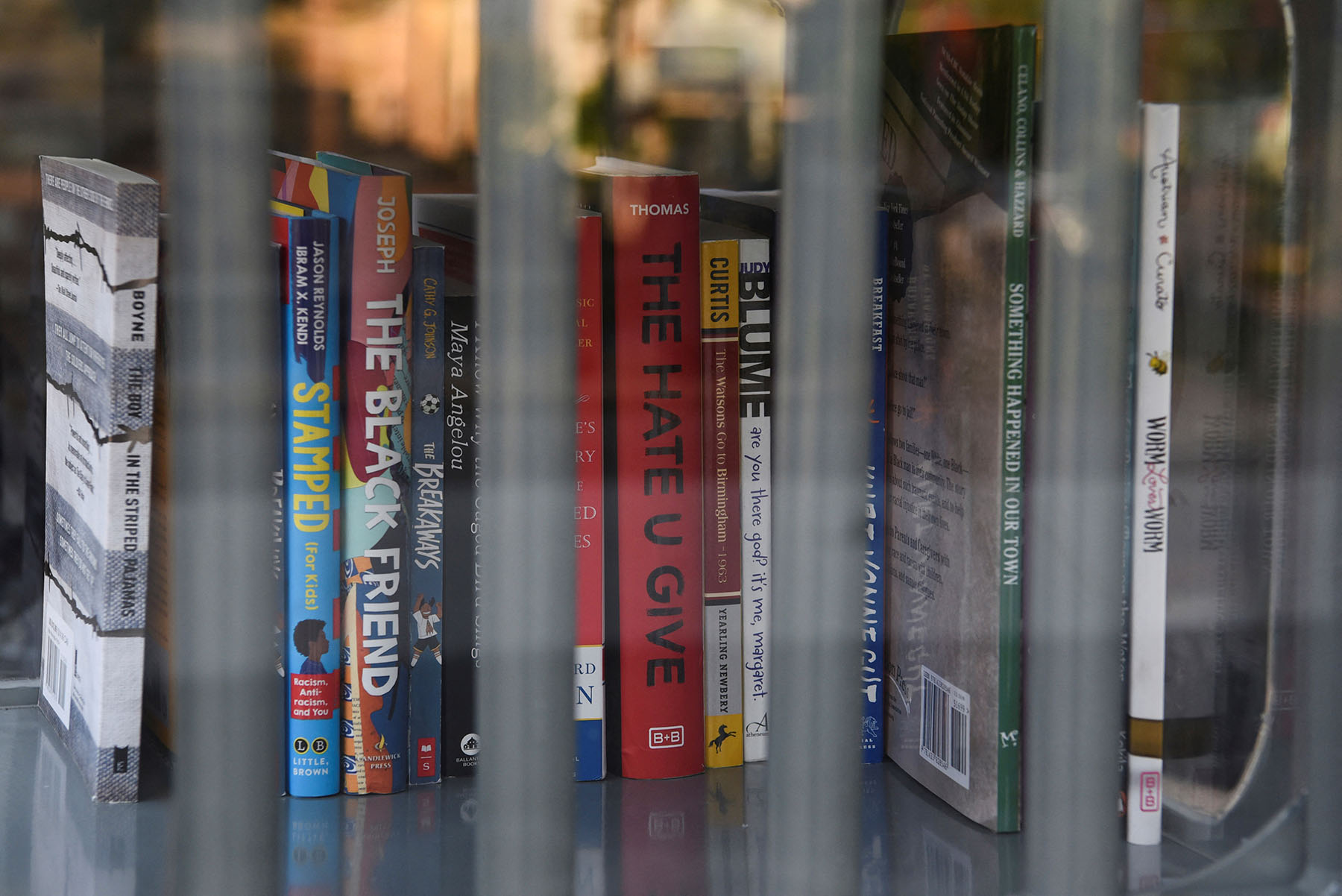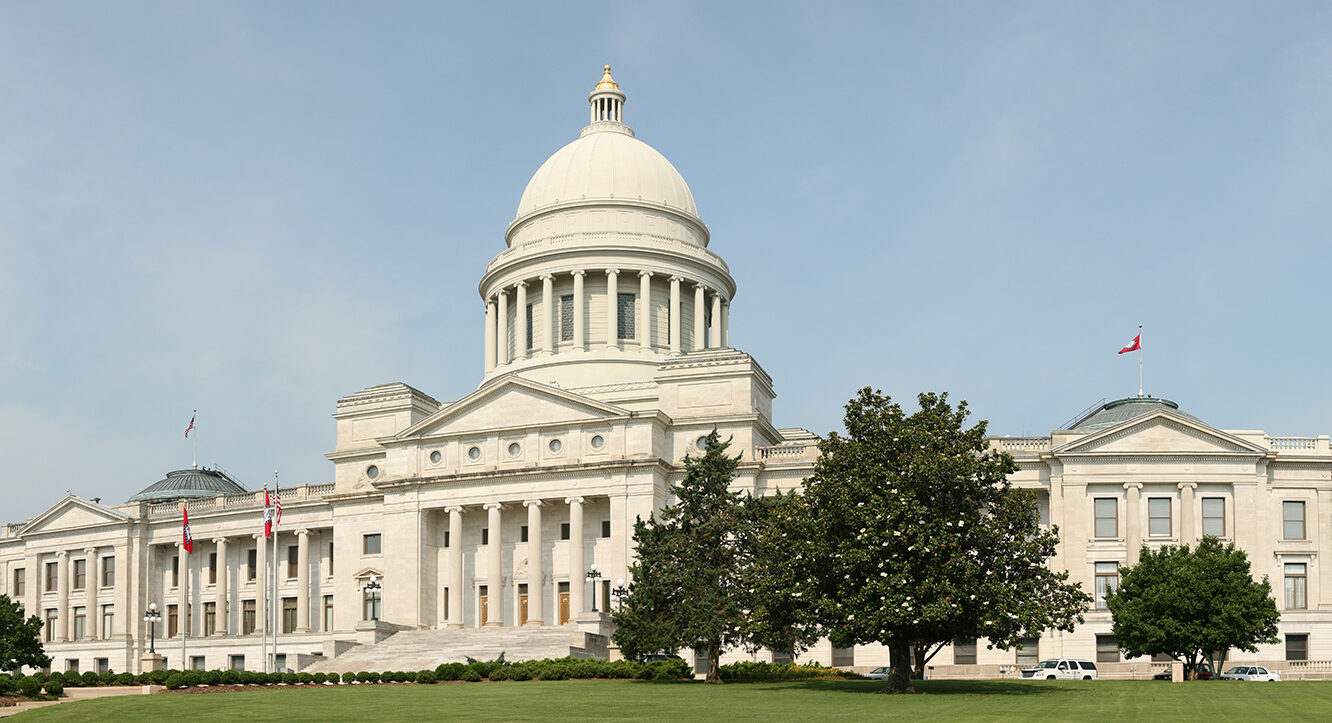Florida bans more books from its public school libraries and classrooms than any other state in the country, according to a new report from PEN America released on Thursday.
PEN America, an advocacy organization founded in 1922 that champions freedom of expression, recorded 3,362 instances of book bans in public K-12 schools in the United States from July 1, 2022 to June 31, 2023, a 33 percent increase from the previous year.
According to the report, school districts in Florida initiated 1,406 book bans; followed by Texas with 625, Missouri with 333, Utah with 281 and Pennsylvania with 186.
The bans encompassed 1,557 unique book titles and 1,480 different authors, illustrators and translators, the report said, but “overwhelmingly” affected books focused on race, gender and sexual orientation. Books with themes of physical abuse, health and wellbeing, and grief and death were also strongly represented among those banned.
“The freedom to read is under assault in the United States—particularly in public schools—curtailing students’ freedom to explore words, ideas, and books,” the report’s authors wrote. “Amid a growing climate of censorship, school book bans continue to spread through coordinated campaigns by a vocal minority of groups and individual actors and, increasingly, as a result of pressure from state legislation.”
PEN America identified “punitive state laws, coupled with pressure from vocal citizens and local and national groups” as the primary drivers of the nationwide surge in book bans.
The report tallied eight states that have enacted so-called “education intimidation” bills in the past year and mentioned three prominent advocacy groups known for pushing book bans across the country: Moms for Liberty, Citizens Defending Freedom and Parents’ Rights in Education. Armed with “vaguely worded legislation,” the report notes, such advocacy groups can “pressure compliance with their censorious demands.”
That kind of “convergence,” the report states, has been extremely effective.
“Eighty-seven percent of all book bans were recorded in school districts with a nearby chapter or local affiliate of a national advocacy group known to advocate for book censorship,” the report states. “Sixty-three percent of all book bans occurred in eight states with legislation that has either directly facilitated book bans or created the conditions for local groups to pressure and intimidate educators and librarians into removing books.”
When reached for comment, Moms for Liberty co-founders Tina Descovich and Tiffany Justice claimed that “so many books in elementary schools contain graphic animations about sex acts” and suggested that PEN America’s true agenda was opposition to “parental rights” in education.
“Parents have a process where they can ask questions about the age-appropriateness of material being made available to their children in public school,” they said in a statement. “That is a First Amendment right guaranteed by the Constitution.”
Representatives for Citizens Defending Freedom and Parents’ Rights in Education did not respond to a request for comment.
In Florida, Republican Gov. Ron DeSantis has signed three laws that restrict access to certain reading materials in public school classrooms. But DeSantis has previously dismissed claims of widespread book banning in Florida as a “hoax” perpetrated by the mainstream media and leftist political opponents.
Three Laws Signed by DeSantis at the Center of Florida’s Surge in Book Bans
“This idea of a book ban in Florida, that somehow they don’t want books in the library — that’s a hoax,” DeSantis said. “And that’s really a nasty hoax, because it’s a hoax in service of trying to pollute and sexualize our children.”
A spokesperson for DeSantis did not respond to a request for comment.
PEN America, along with Penguin Random House, select authors and parents of children enrolled in the public school district filed a federal lawsuit against Florida’s Escambia County School District in May, claiming the district violated the First Amendment by siding with those who express “openly discriminatory bases” for book challenges and has “disproportionately targeted books by or about people of color and/or LGBTQ people.”
PEN America Sues Florida School District Over Book Bans
This type of legislation, specifically in Florida, appears to run afoul of legal precedent established in the 1982 Supreme Court decision in Board of Education, Island Trees Union Free School District v. Pico, in which the court ruled that school libraries have “special characteristics,” making “that environment especially appropriate for the recognition of the First Amendment rights of students.”
“Local school boards may not remove books from school library shelves simply because they dislike the ideas contained in those books and seek by their removal to ‘prescribe what shall be orthodox in politics, nationalism, religion, or other matters of opinion,’” the plurality opinion stated.
In Pico, the Supreme Court decided that a school board does have limited discretion over what materials are available in its schools, but the motivation behind removal may only be based on “established, regular, and facially unbiased procedures for the review of controversial materials.”
And yet, the unprecedented surge in book bans continues. Students’ efforts to push back gave the report’s authors a “glimmer of hope.”
An Unprecedented Uptick in Book Bans Brings First Amendment Scrutiny
“Alongside increasingly coordinated efforts to prohibit certain types of instruction and expand avenues for parents, government officials, and citizens to intervene in curricular and extracurricular decisions, book bans are a poignant indication of the destructive ways in which censorship threatens public K–12 schools; free expression; and the free exchange of ideas, information, and knowledge,” the report’s authors wrote. “As students increasingly step up to fight from the frontlines, more adults must follow their lead.”
Editor’s note: This story has been updated to include a statement from Moms for Liberty.
Tags







